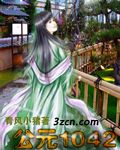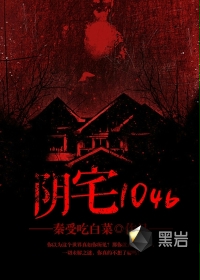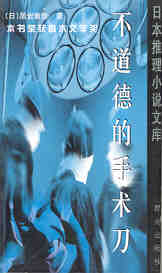04道德经英译本85种-第111部分
按键盘上方向键 ← 或 → 可快速上下翻页,按键盘上的 Enter 键可回到本书目录页,按键盘上方向键 ↑ 可回到本页顶部!
————未阅读完?加入书签已便下次继续阅读!
From the children of the past
To the children of the present
Supports the children of the future。
Why do you cultivate your image
When your natural being is already full?
Why aggrandize your family pride
When the perfection of family is complete?
Why meddle with your community
When its natural form is imperishable?
Why do you fight to enrich your nation
When its simple order is abundance?
Why divide and oppose earth and heaven
When the purity of their union is unalterable?
Therefore; examine yourself
To become your Self。
Examine your home
To become a family。
Examine your village
To become a community。
Examine the state
To become a nation。
Examine the world
To become one with Being。
How do I know
That this is the way of Nature?
Because I asked It;
From within my deepest self。
55
One whose inner strength is full and clear
Seems like one who抯 just arrived
From another world。
To him; the bee has no sting;
The serpent; no venom。
To him; the wild beasts
Have no teeth or claws。
To him; predatory birds
Present no menace。
His skeleton seems weak;
His muscles tender;
Yet he抯 got a grip like a vise。
He appears to lack experience
In the dance of sexual relations…
Yet his genitals are fully formed;
And he knows how to use them。
People yell every day;
Never seeming to get hoarse。
But his peace is unshakeable…
Its source is the Enduring Harmony。
Knowing the eternal is called
The subtle illumination。
Thus is his body抯 life
The only blessing he needs。
So how could we speak
Of controlling the mind;
Or directing chi to further violence?
The pursuit of power soon exhausts itself:
Such strength is not from Tao。
Whatever is not from Tao
Is already dead。
Here the poet imagines a being who has just arrived from another world; and how such a one may be entirely unconscious of the fears and pretences of humans。 In this he finds a metaphor for the follower of Tao who has developed; or rather revealed; his true inner self。 We are reminded of the stark imagery of Chapter 20; where the contrast is drawn between himself and the followers of the collective。 There we met the poet himself梬eak; naive; strange; dull; and separate梔ivorced from the world of purchase and competition; of power and control; of pursuit and its incipient fear。 For himself; Lao Tzu can only explain that he is indeed different; for he 〃drinks from the breast of the Sublime Mother。〃
Then; here in Chapter 55; the 〃alien〃 metaphor is even more vividly raised; so that it is almost reified: the subject of this poem is one who simply has no inner discourse with the values and fears of the collective; yet the positive bounty that comes of that separation is made clear。 This person is strong; sexually able and (presumably) active; secure in the consciousness that 〃his body's life is the only blessing he needs。〃 He has no need of new age gimmicks梞ind control; self…improvement; or the nurturing of physical power through the manipulation of the life force within him。 This person has all he needs in his physical being and its freedom from the constraints and self…conscious fears bred by ideologies and systems of religion or other forms of group belief。 This; indeed; is his 〃subtle illumination〃: he is beyond the fixation with appearances; his understanding reaches past collective perception; past the pursuit of power; beyond intellect and deep into the realm of his feeling nature。
One note on translation must be added; since this rendering departs significantly from traditional texts; where the phrase chih tzu is taken to symbolize the follower of Tao as an infant or baby。 I was guided to see that phrase as a compound that actually entails a play on words with Lao Tzu's own name (the same character can mean both 〃baby〃 and 〃philosopher〃); the meaning of the whole being 〃one who is newly arrived。〃 From there; it was no great stretch of imagination to see that the poet was thinking of a person or being who had appeared on earth from another world。 This image seems to better resonate with the descriptions that follow it; and to emphasize the unique inner separation discussed above。 It also places an appropriate context on the line chung jih hao erh pu sha; which is normally taken to refer to the baby that cries all day without getting hoarse。 Clearly; Lao Tzu would not wish for us to draw such a comparison between a wailing infant and one who is said (in the very next line) to possess an 〃unshakeable peace。〃 Indeed; there is no subject specified for whoever is crying or yelling; I found that it made the most inner sense as a comparison between the noise of the collective and the peace of the one in harmony with himself and his Origin。
56
Understanding doesn抰 talk a lot;
A lot of talk lacks understanding。
Can you be guided by silence?
Can you shut down your outer senses?
Can you blunt your jagged edges?
Can you let the inner knots unravel?
Can you let your brilliance be dimmed?
Can you merge with the dust of the earth?
This is called 揾armonizing light and dark。?br》 In this; you possess no one;
But are loved by many。
You are equally immune
To attraction and revulsion。
You are equally receptive
To profit and to loss。
You are unmoved by fame;
And yet you attract honor。
Because you make no claim;
You can be free of disgrace。
Thus are you lovingly received
Into the Heart of Nature;
Forever。
One of the wonders of this little book of poems is how Lao Tzu was able to hammer so lightly at the same themes; and with such delightful variation in expression; so that each repetition is fresh and uniquely nourishing。 The themes here presented should be quite familiar by now to one who has read the poems in order to this point: the intrinsic value of dispersing excess in speech and action; the fulfillment that comes of dimming down the outer senses and turning within toward one's feeling nature; the deep love that is drawn to one who abandons claim and possession on others; and the natural grace that arises in one who is 〃unmoved by fame。〃
In many traditional renderings of this verse; it is presented as a teaching on sitting meditation: be quiet; close off your senses; be soft and still as you settle your inner dust。 This is a very good approach; but perhaps only to half the poem; as it were。 I have been guided to see this verse as Lao Tzu's teaching on living as meditation: how the inner values and practices that we usually think of as meditation (sitting down and being open; still and silent) can become a way of life。 After all; meditation that is not continued into life has nothing of value over an afternoon nap。
I think that Lao Tzu would like us to learn to disperse the division between the practice of meditation and the activity of daily living。 Meditation is not properly a means of escape or relaxation from the rat race beyond the chair or cushion; it is meant to be what infuses the relationships and activities of every waking moment。 When the way we do our work; raise our children; manage our homes; and interact socially becomes increasingly indistinguishable from the way we meditate; then the lesson of this poem will have been fully integrated into our lives。 For this is where meditation takes us beyond the enrichment of life in a bodily form; and into the realm of true immortality; where 〃you are lovingly received into the Heart of Nature forever。〃 As the division between inner and outer; between meditation and living; is dissolved; so is that between form and non…form; until the empty falsehood of death…as…ending is finally discarded。 What then remains is all we need: life beyond time; perpetuated in consciousness。
57
In government; objectives are clarified。
In warfare; objectives are concealed。
In following the Tao; objectives are discarded。
How do I know that this is so?
By feeling it from within。
With every commandment thrust upon the people;
They become more impoverished and alienated。
As the weapons of the state grow ever more destructive;
The more contagious is the fear that desolates the nation。
The further science spreads its hegemony of the intellect;
The more demonic are the products that roll off the assembly line。
As the precedents of litigation grow; and the statutory codes accumulate;
The politicians and criminals will proliferate and flourish。
The counsel of the Sage is different:
Let your action lack force;
And there will be spontaneous transformation。
Let meditation guide you;
And the natural order will arise。
Abandon power…
Lead only by example and consensus;
And there will be abundance in the land。
Defeat desire; let innocence be your law;
And your nation will return
To its deepest; simple nature。
Clearly; there are points in this book where Lao Tzu 〃takes the gloves off;〃 and this is one of them。 Yet this verse goes far beyond a mere diatribe against laws and lawyers; armies and weapons; technologies of dull convenience; and the depredations of politicians and corporate tyrants; for the poet again offers a natural alternative to the proliferation of tyranny。 As amazing as it may be to contemplate how little humans appear to have changed in 2;600 years; we must also read this poem with a view to its practical purpose: the gifts of peace; abundance; and true progress that we naturally desire as both individuals and as nations are more readily available to us than we have been led to believe by those who would define them in terms of legislation; power; and the manipulation of Nature。 Drop the struggle; for there is nothing that needs to be fought; let the meditative life described in the previous poem guide you and your nation; lead by example and consensus; not with force or commandment。 This is the way of return that is spoken of throughout this book; and the poet would like us to understan





